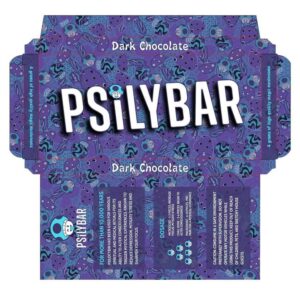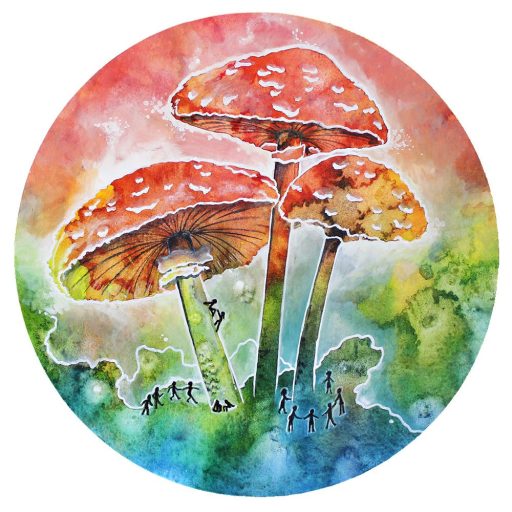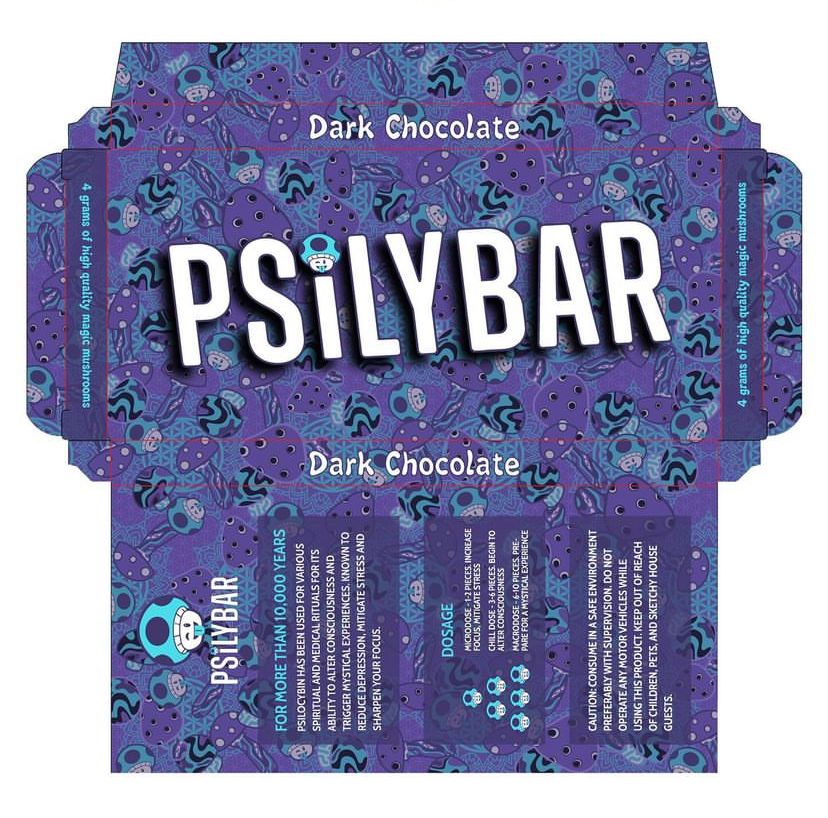My Blog
Psilybar Chocolate
Psilybar Chocolate
Once dismissed as the dangerous dalliances of the counterculture, these drugs are gaining mainstream acceptance. Several states and cities in the United States are in the process of legalizing or decriminalizing psilocybin. Mostly for therapeutic or recreational purposes. Respected institutions such as Imperial; Johns Hopkins University, the University of California, Berkeley; and the Icahn School of Medicine at Mount Sinai in New York City have opened centres devoted to studying psychedelics. Several small studies suggest the drugs can be safely administered. They also may might have benefits for people with intractable depression and other psychological problems. This includes post-traumatic stress disorder (PTSD). One clinical trial involving MDMA has recently ended, with results expected to be published soon. Regulators will then be considering whether to make the treatment available with a prescription.

Psychedelic-assisted psychotherapy could provide needed options for debilitating mental-health disorders. This includes PTSD, major depressive disorder, alcohol-use disorder, anorexia nervosa and more. These kill thousands every year in the United States, and cost billions worldwide in lost productivity. This is one of the many reasons why Ecstasy and Psilocybin are Shaking Up Psychiatry.
But the strategies represent a new frontier for regulators. “This is unexplored ground as far as a formally evaluated intervention for a psychiatric disorder.” Says Walter Dunn, a psychiatrist at the University of California, Los Angeles. He sometimes advises the US Food and Drug Administration (FDA) on psychiatric drugs. Most drugs that treat depression and anxiety can be picked up at a neighbourhood pharmacy. These new approaches, by contrast, use a powerful substance in a therapeutic setting. This is done under the close watch of a trained psychotherapist. Regulators and treatment providers will need to grapple with how to implement that safely. Antidepressant based on party drug gets backing from FDA advisory group
Haus of Utopia Chocolate
“The clinical trials that have been reported on depression have been done under highly circumscribed and controlled conditions”. Says Bertha Madras, a psychobiologist at Harvard Medical School who is based at McLean Hospital in Belmont, Massachusetts. That will make interpreting results difficult. A treatment might show benefits in a trial because the experience is carefully coordinated, and everyone is well trained. Placebo controls pose another challenge because the drugs have such powerful effects.
And there are risks. In extremely rare instances, psychedelics such as psilocybin and LSD can evoke a lasting psychotic reaction. This is more often in people with a family history of psychosis. Those with schizophrenia, for example, are excluded from trials involving psychedelics as a result. MDMA, moreover, is an amphetamine derivative, so could come with risks for abuse.
But many researchers are excited at how Ecstasy and Psilocybin are Shaking Up Psychiatry. Several trials show dramatic results. In a study published in November 2020, for example. 71% of people who took it for major depressive disorder showed a greater than 50% reduction in symptoms after four weeks. Half of the participants entered remission. Some follow-up studies after therapy, although small, have shown lasting benefits.
“Sometimes with a therapeutic, you look at the data and think. ‘It slightly moved the needle”. says Jennifer Mitchell, a neurologist at the Weill Institute for Neurosciences at the University of California, San Francisco. She worked on the recently finished MDMA trial. “Then you see MDMA and you’re like, ‘Never mind that.’ It’s a very different effect size.” Rutter was very moved by his experience with psilocybin. He has consulted for one of the companies sponsoring trials of the compound.
haus of utopia
The current wave of interest in the therapeutic potential of psychedelics is something of a renaissance. In the 1950s and 1960s, scientists published more than 1,000 articles on using psychedelics as a psychiatric treatment. The drugs were tested on around 40,000 people in total. Then, as recreational use of the drugs spread, they were banned and the FDA constricted supplies for research. Only recently have neuroscientists and psychopharmacologists such as Carhart-Harris had the technology to start unpicking how they work in the brain. That has given them some insights as to how these compounds might help in psychiatric disease.
Researchers started exploring the biological effects of psychedelics in the late 1990s. They would use neuroimaging techniques such as positron emission tomography before and after volunteers used the drugs. Or in conjunction with antagonists that dampen some of their effects. The studies show similarities in how brains respond to psychedelics such as psilocybin and LSD. As well as to N,N-dimethyltryptamine (DMT). the active ingredient in ayahuasca. And also mescaline, a psychedelic compound derived from the peyote cactus. They all act on receptors for serotonin, a neurotransmitter that affects mood.
Serotonin
Serotonin is also the target of the predominant class of psychiatric drugs known as selective serotonin reuptake inhibitors, or SSRIs. It is now thought that these antidepressants work not by flooding the brain with the neurotransmitter. This was initially assumed, but by stimulating neuroplasticity — the brain’s ability to forge new neuronal connections. There is some evidence that psychedelic drugs, such as psilocybin, enhance neuroplasticity in animals. Also, limited evidence suggests that the same might happen in human brains. Ecstasy and Psilocybin are Shaking Up Psychiatry in many ways. Clinical studies also suggest that the biological effects work best in concert with human guidance.

